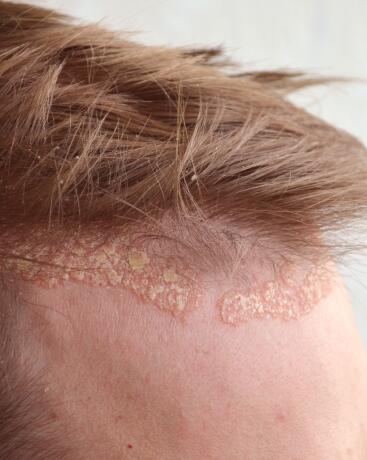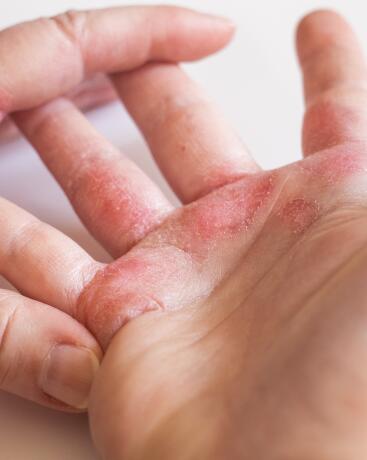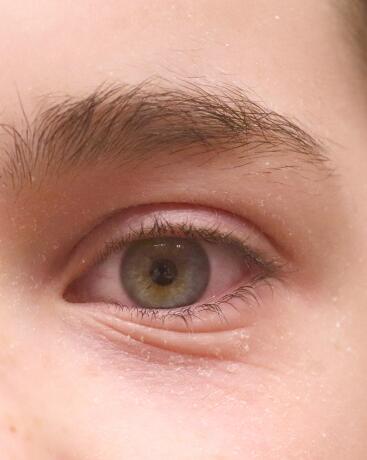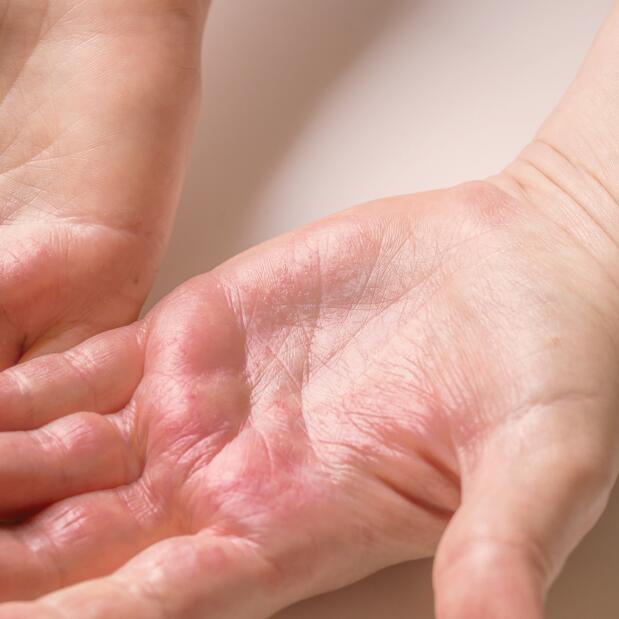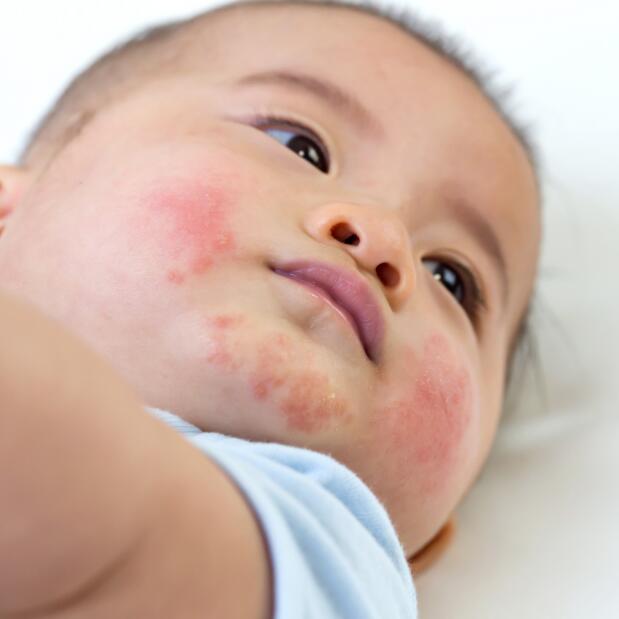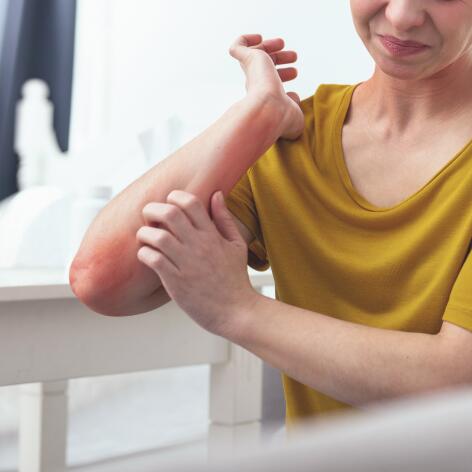Eczema
- Living with eczema and psoriasis
- Living with eczema and psoriasis: Children
- Psoriasis and eczema for children - rules for moisturizing
- Psoriasis and eczema in adults: suitable hygiene
- Adults - Care and anti-itching tips
- Children - Care and anti-itching tips
- Psoriasis and eczema in children: suitable hygiene
- Living with eczema and psoriasis: Adult
- Psoriasis and adult eczema - rules for moisturizing
Eczema
Red and itchy patches... Maybe it's eczema. But what is this chronic inflammatory skin disease? What causes it? And how can it be tamed?
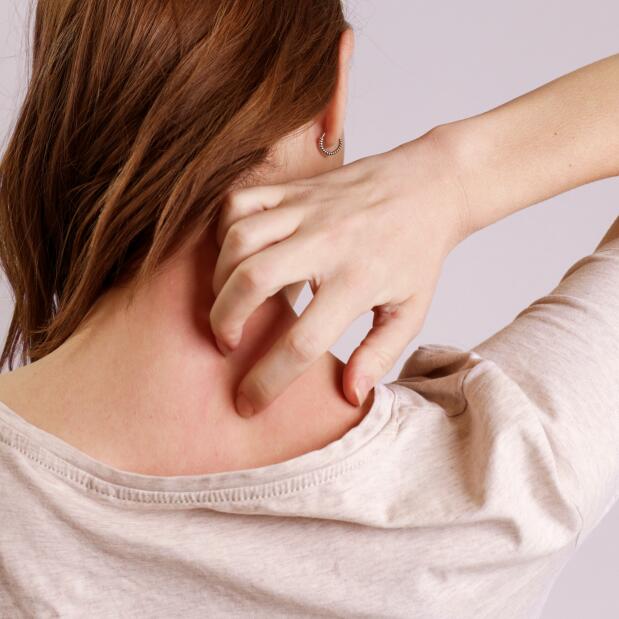
Atopic eczema: dry, sensitive skin
Most cases of eczema are of the atopic form. Caused by multiple factors, this skin disease is largely hereditary. It is characterised by an extremely dry epidermis with a poor hydrolipidic film that should be protecting it. As a result, the immune system overreacts to external aggressions and causes inappropriate inflammation. It is this inflammation that triggers the symptoms of eczema. That's why it's important to moisturise your skin every day.
What are the symptoms of eczema?
During an eczema flare-up, red and indistinct patches appear on the skin. These patches are dry and rough, often painful and itchy. So much so that it is difficult to keep from scratching. A vicious circle then sets in: because it itches, you scratch; because you scratch, it itches even more. Scratching also encourages inflammation of the lesion, which can sometimes be complicated by a bacterial infection. The lesion then starts oozing. Another distinctive feature is that even when not flaring up, eczema-prone skin often remains very dry.
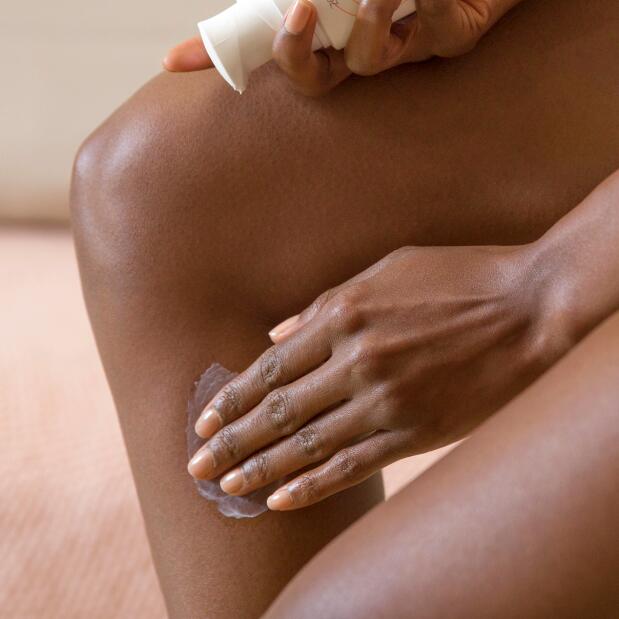
Contact eczema: the allergens responsible
The symptoms of contact eczema are the same as those of atopic eczema. The main difference is the trigger for the flare-up. In the case of contact eczema, a specific allergen can be identified. When the patient is exposed to the allergen (via cosmetics, medication, jewellery, etc.), the flare-up occurs, either in a localised or generalised manner. Sometimes the same person can develop both forms of eczema, since atopic skin is more sensitive and therefore more prone to allergic reactions.
What areas of the body are affected by eczema?
Eczema can affect several parts of the body, whether it’s atopic or contact eczema. Some people suffer from flare-ups on the scalp, face, eyelids, arms and legs. Symptoms can also affect the feet, stomach and back.
Eczema: environmental causes?
Eczema is the result of several factors, some of which are hereditary and others environmental. In addition to the genetic aspect, there are also external factors associated with the person’s environment and lifestyle. These include exposure to tobacco and urban industrial pollution, as well as excessive skin washing and poorly ventilated homes.
FRIENDLY (AND EXPERT) ADVICE
Moisturise your skin every day, even when not in a flare-up
Apply an emollient daily. This little routine will help you reduce the frequency of eczema flare-ups and keep your skin as healthy as possible. And even when you're not having flare-ups, keep up the good habits.
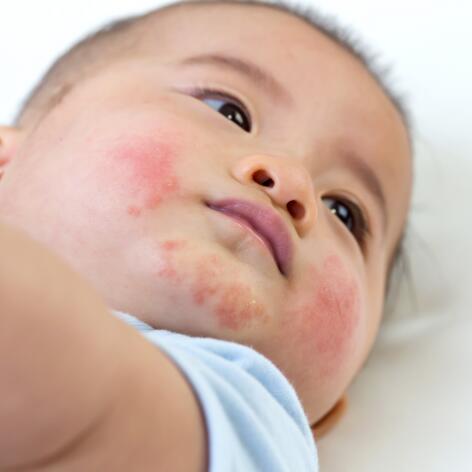
Eczema in infants
Atopic eczema most often appears in infancy, from the age of three months. In infants, the lesions are often found on bulging areas of the face and limbs, and on the scalp and buttocks. Symptoms usually disappear during childhood, but 10-15% of cases persist into adulthood.
Proper hygiene for eczema in children
What are the treatments for eczema?
Apart from the application of an emollient to moisturise the skin and restore its protective barrier, other treatments, such as localised corticosteroids or immunomodulators, aim to reduce inflammation during flare-ups. The aim of localised care is also to reduce the itching caused by eczema. Antihistamines and other molecules with a systemic action – i.e. that act on the whole body – can also be administered on a case-by-case basis.

Playing YouTube videos requires the use of cookies in order to offer you targeted advertising based on your browsing For more information, please visit YouTube's « cookie » policy.
You have rejected Youtube's cookies and therefore you cannot view the video.
You can change your choices by clicking on « Cookie Settings » and accept Youtube's cookies to enable the video.
You can change this setting and withdraw your consent at any time.
OUR ANSWERS TO YOUR QUESTIONS
We are here to answer your questions.
Atopic eczema is a chronic and recurring condition. But many patients manage to control it and live with it, without discomfort.
It affects between 10 and 20% of infants and nearly 10% of adults under the age of 30. Its frequency decreases with age, affecting less than 3% of patients over the age of 50. Women are more affected than men.
Stress is not a cause of eczema. However, it does encourage flare-ups in patients who are already prone to eczema.
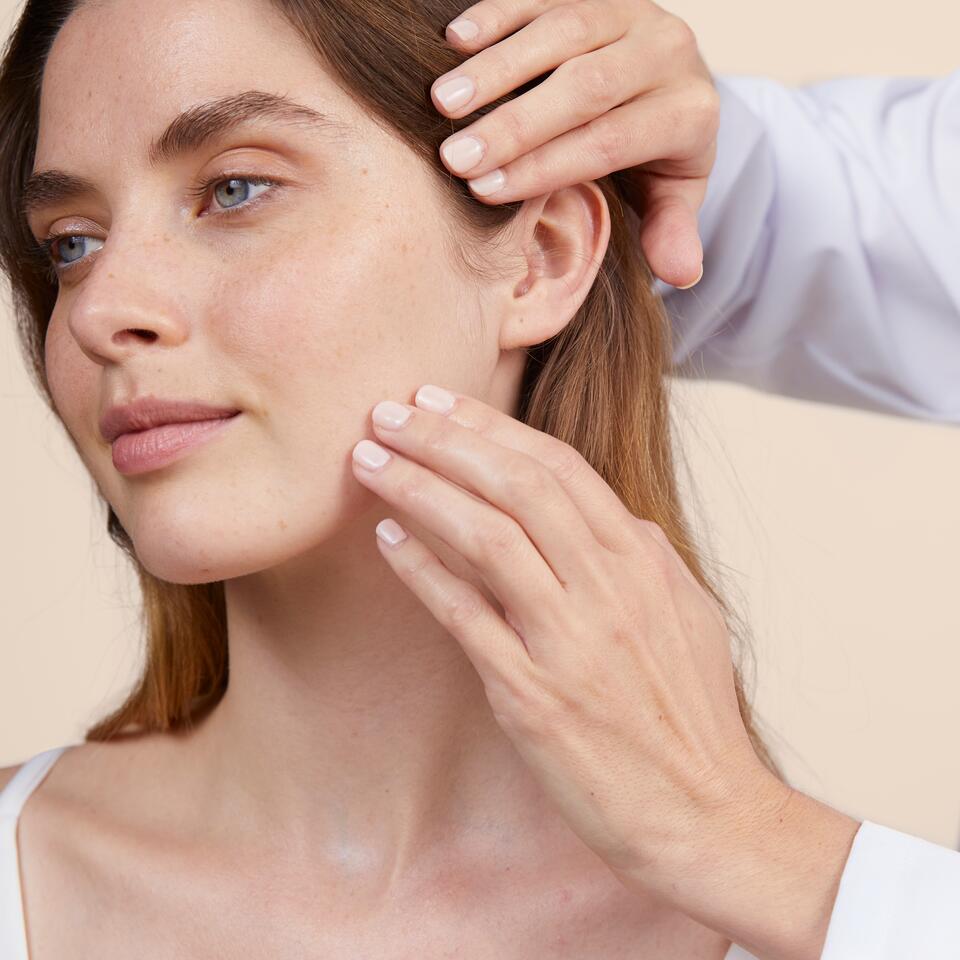
Our solutions against eczema
I love it, I have no more redness, itching or allergies. My skin is soft.
TO BE CONTINUED
- Discover Living with eczema: Eczema: Anti-itching tips and care
Living with eczema: Eczema: Anti-itching tips and care
Which skin care routine should you adopt?
Identify what it really needs with the help of our experts and discover the most suitable skin care routine for you.

